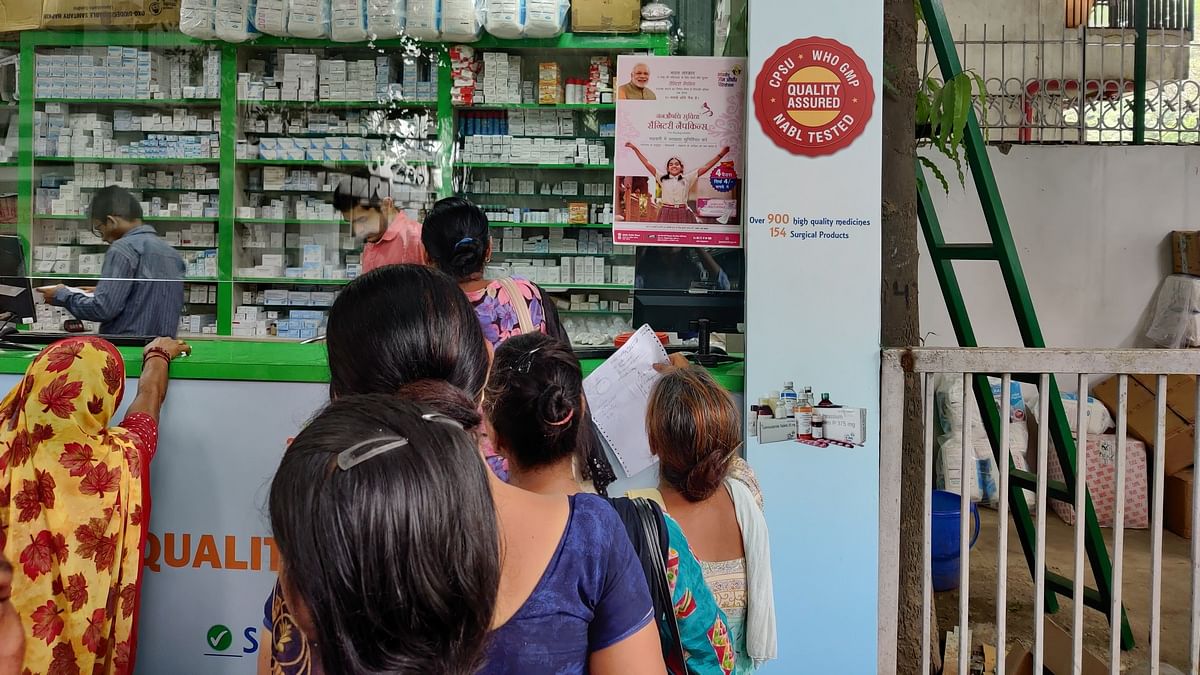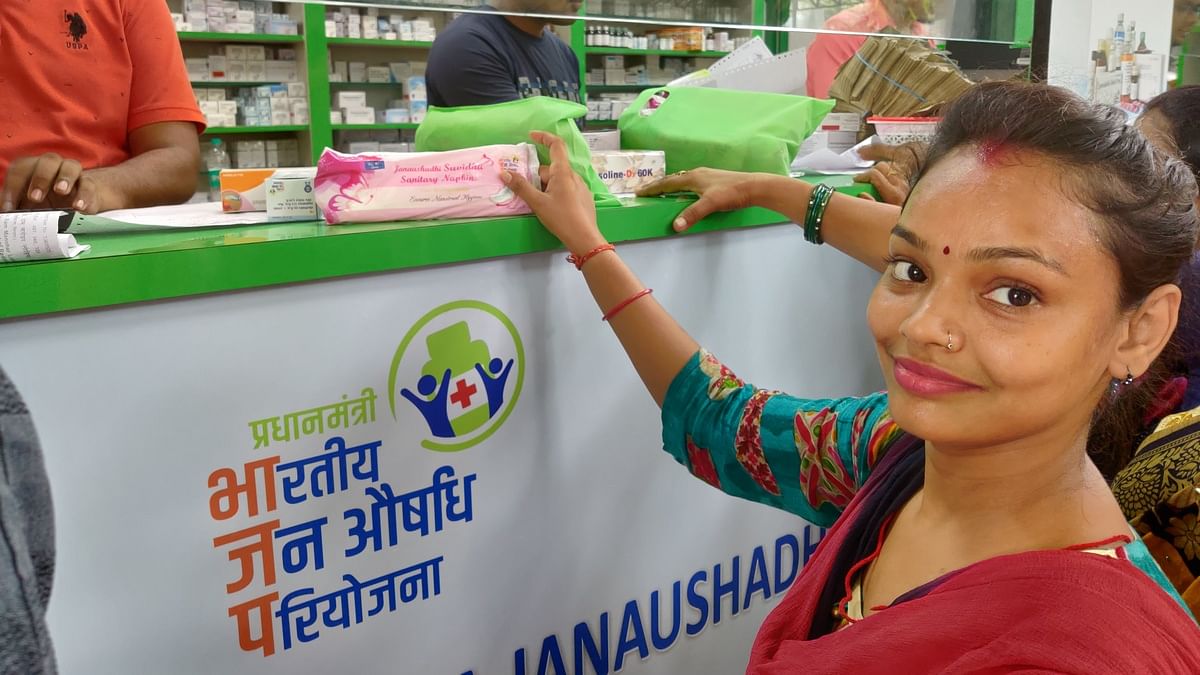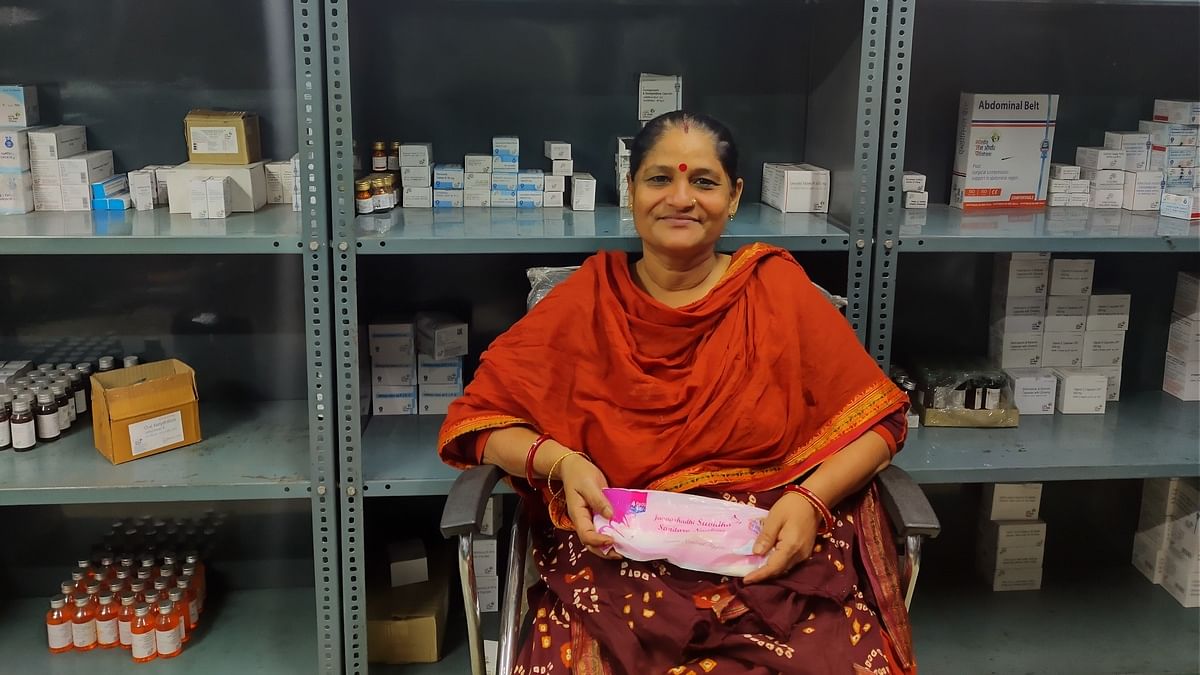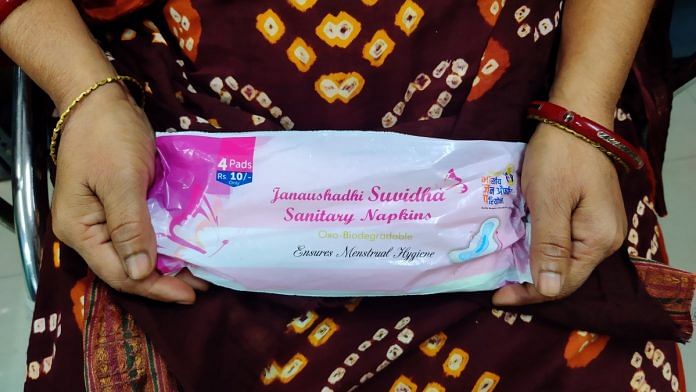New Delhi: It isn’t easy to deal with menstruation anywhere, but in India it’s even harder. A majority of young girls in the country aren’t taught, in their early childhood, why they will bleed for nearly a week every month or how to handle periods in a safe and hygienic way.
Insufficient awareness about reproduction and superstitions linked to notions of purity have relegated menstrual cycle to a taboo subject — only spoken of in whispers among women.
The colour of menstrual blood is still blue on television and lack of toilets for girls in schools have prevented them from receiving education.
When Period. End of Sentence bagged an Oscar in the Documentary Short Subject category earlier this year, celebrations had taken over the quaint manufacturing unit in Kathikhera village — just outside Hapur in Uttar Pradesh — where the movie was filmed.
But when people residing in the area were asked about menstruation, the men looked awkward, boys laughed, women giggled and the girls simply looked away.
On Monday, the central government slashed the price of Suvidha sanitary napkins that are sold at Janaushadhi Kendras from Rs 2.5 to just Re 1 per piece — a significant 60 per cent drop.

Making good on the BJP’s 2019 Lok Sabha poll promise, current Minister of State for Chemicals and Fertilizers Mansukh Mandaviya announced that the government will bear cost of the retail discount in the form of a subsidy. This will allow manufacturers of these oxo-biodegradable pads to keep making them at the current cost of production — at Rs 2.5 per piece.
“During the last one year, around 2.2 crore sanitary napkins have been sold from these stores. With reduction in prices, we expect the sales to jump over two times. We are focusing on quality, affordability and accessibility,” Mandaviya had said in an interview to PTI Monday.
But for a jump in sales, pads should first be available — a reality that Vinod, pharmacy in-charge at the Pradhan Mantri Bhartiya Janaushadhi Kendra in Delhi’s Ram Manohar Lohia (RML) Hospital, said. He explained how it has been “an uphill battle for the past three months”.
“We just got a delivery of 13 crates of these pads last week,” he said, during ThePrint’s visit to the centre this week. “I’ve been sending requests via emails for the past three months but it looks like they don’t have enough supply to fulfill all orders.”
In another government-owned and NDMC-managed Janaushadhi Kendra, in a dimly lit subway outside RML hospital, Suvidha pads weren’t available on the shelves. At 12:24 pm Tuesday, a day after junior minister Mandaviya’s announcement, pharmacy manager Sanjay Sharma was notified about the price drop via a WhatsApp forward.
“We received an order in the first week of August, and within one week, the entire batch of pads was sold out,” he told ThePrint.
Sharma was talking about three crates with 200 packs of four pads in each. “The demand is very high and women come frequently asking for pads,” he said, adding that an order was placed only two days ago and a delivery is expected in a week’s time.
Also read: Women voters in Madhya Pradesh want jobs, not sanitary napkins and cooking gas
With great ideas come great responsibility — to implement
The centre where Vinod works is run by the National Federation of Farmers Procurement, Processing & Retailing Cooperative of India on a tender basis and provides — like all 5,500 Janaushadhi centres across the country do — generic medicines at rates significantly lower than the market.
The BPPI (Bureau of Pharma Public Sector Undertakings of India) is the implementing agency of the Janaushadhi scheme while the drugs themselves are exclusively distributed in the capital by privately-owned Sanch Enterprises.
In terms of manufacturing, Shourya Anand, founding director of the start-up Shourya Hygienes, said his organisation “has always fulfilled the tender given by BPPI”.
“I don’t know the exact supply-chain model. But at our end we have the capacity to produce up to one lakh pads a day and we give them through a one-point supply system to the BPPI,” he added.
Shourya Hygienes, which describes itself as a “leading supplier of Sanitary Napkins to Various State Govt and other Institutions”, drops a 32-feet container carrying roughly “1 lakh” napkins at the BPPI warehouses on a bi-weekly basis. “It depends on the order they give us,” Anand told ThePrint.
The lag between order and delivery appears to be at the point of distribution, an allegation that the proprietor of Sanch Enterprises vehemently denies.
Vinod said that employees at RML’s Janaushadhi Kendra have to pick up orders from the warehouses since Sanch hasn’t delivered any till date.
Sanch’s Rakesh Sakhuja, however, insisted “there is no delay” from their side and they are in the process of distributing. “There are almost 6,000 such centres in the country and the system they’ve devised is brilliant. I can’t do more service than this — who would have thought that you could get a pad for Re 1?” Sakhuja asked.
“There is no lapse in implementation. One should appreciate that the government is taking such a big initiative. Agar hum usme galtiyaan nikaalein toh shayad hum Hindustani theek tareeke se job nahin kar rahe (If we start finding faults in this also, then maybe we,
as Indians, are not doing our job right),” he added.
ThePrint reached BPPI for a response, but the head of operations was unavailable for comment.
A great scheme, for those who know about it
At the pharmacy inside RML, 24-year-old housewife Niyati Gupta and 35-year-old factory worker Kavita Kumari were learning about Suvidha pads for the first time.
“I just read that poster while standing in queue for medicines,” Gupta said, pointing at a pink A3-sized advertisement stuck to the glass window panes of the store.

Kumari said, “The morning newspaper had leaflets about it but who has the time to read in in between household chores, the children and our own work?”
Gupta took five packets of the discounted sanitary pads from the store and the bill came to Rs 20. “Now that I know about them, of course, I’ll buy them. I could only get the Rs 30 Whisper packet before this,” she said, adding, “There are countless women who couldn’t buy them before, and now they can.”
She also added how she “feels no shame” in asking for sanitary pads at the counter. “What is there to be embarrassed about here?”
Shakuntala Sudha, who works as a peon at the underground Janaushadhi centre, told ThePrint that she earns roughly Rs 12,000 a month and buys Suvidha pads for herself and her daughters. It has helped her save on a monthly basis, she said.

“Times have really changed. Before marriage, when my mother was alive and we lived in Rajasthan, she would make me pads from strips of cotton and bandages — any material that she could carry home from the hospital where she worked as a nurse,” Sudha said.
She pointed at a woman at the store and said, “Look, that’s a woman, but you’d never be able to tell, would you?” The person she was referring to had short hair and was dressed in a polo t-shirt and jeans.
“Nowadays, I know of girls, my neighbours, who are being brought up like sons in their homes,” she said.
Also read: Price of sanitary pads won’t change much despite zero GST. Here’s why




Sorry to say in kerala janoushadi pharmacy they never sale this pad always saying out of stock